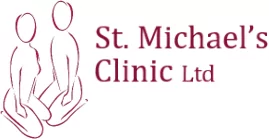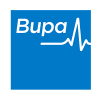Award winning dermatology service, with over 20 years of experience
Short waiting lists, on some occasions offering same week appointments
Safe environment, in Care Quality Commission approved facilities
ACNE SCAR TREATMENT SHREWSBURY, SHROPSHIRE
Acne is a common skin condition that can cause soreness, inflammation and scarring on the face, back, neck and chest. If left untreated or undertreated, acne scars can appear, leading to a decrease in self-confidence and social withdrawal. While medications and home remedies can potentially improve acne or slow the formation of acne scarring, certain treatments are necessary for reducing its appearance. Additionally, there are numerous medical treatments such as dermabrasion, laser therapy and chemical peels that have proven to be very successful in treating acne scars. Unfortunately, these solutions may be time consuming and costly for some patients. To ensure maximum results from your treatment approach, it is important to research potential solutions with a medical professional before proceeding.
ACNE SCARS BEFORE AND AFTER
There are a wide range of acne scar removal treatments available depending on the severity and location of your acne scars. Your expert dermatology consultant will explain all of your treatment options and help you to decide the best acne removal programme for you – see before and after images below.
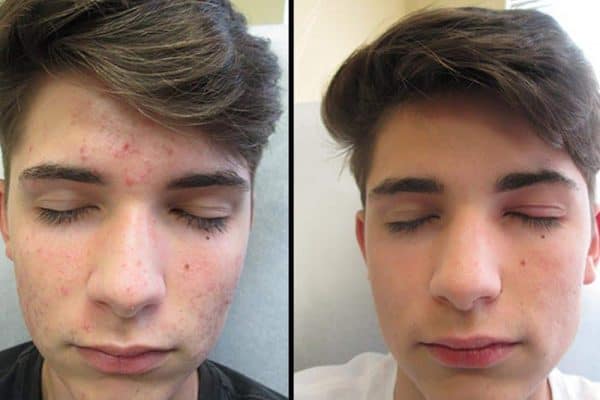
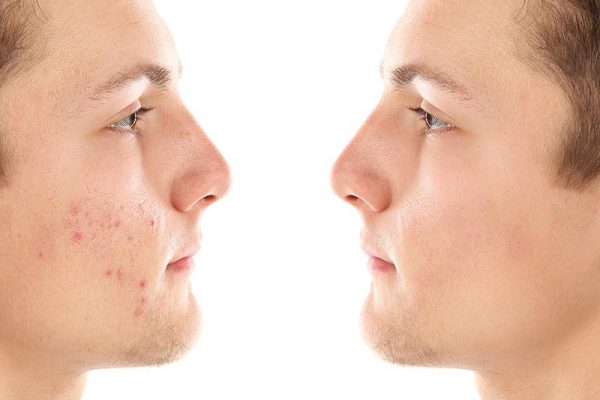
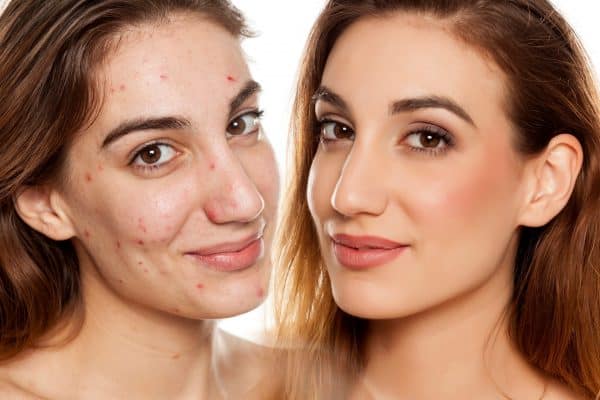
THE DIFFERENT TYPES OF ACNE SCARS
There are many types of acne scars and a person may have a combination of these.
- Ice pick – small, deep holes in the surface of your skin that look like the skin has puncture marks from a sharp object (like an ice pick)
- Boxcar scars – round, square or oval depressions, or craters, in the skin
- Rolling scars – caused by bands of scar tissue that form under the skin. Rolling scars create an indentation in the skin that looks like a wave, due to its wide size and shallow depth.
- Atrophic – flat, thin scars or depressed scars
- Hypertrophic or keloid – thick lumpy scars raised from the skin’s surface.
- Varicelliform– like chicken pox scars
- Papular – scars which appear on the nose and chin. Dr Vishal Madan, Clinic Lead at Everything Skin Clinic has been credited with identifying this form of acne scarring.
TYPES OF ACNE SCAR TREATMENT
Not all acne scars are alike and an individual with acne will have different types of scars. This means that there is no single best treatment for established acne scars. Each scar and patient receives individual treatment according to the scars and their characteristics. Some of the ways acne scars can be treated include:
MICRODERMABRASION
Microdermabrasion is a skin exfoliating treatment that can be used to treat acne and improve the appearance of the skin. It gets rid of acne by gently removing the outer layer of skin using tiny crystals, leaving the skin looking softer, brighter and stimulating new cell growth. It is great for treating acne. It is a safe and effective procedure that is suitable for both men and women of all skin types. Each treatment takes approximately 45 minutes and a course of 3-6 treatments is usually recommended.
CHEMICAL PEEL
Trichloroacetic acid (TCA) peels aim to improve the texture of the skin and to improve the appearance of superficial acne scars
MICRONEEDLING ACNE TREATMENT
Micro-needling is a non-invasive treatment that uses tiny micro fine short needles on the skin to create tiny injuries. These injuries on the surface of the skin boost the skin to produce new tissue and hence new elastic fibres which give the skin a smoother surface. The treatment is suitable for more textural superficial scars or on areas where the skin is thin.
FRACTIONAL LASER RESURFACING
Fractional laser resurfacing is great to treat acne scars. The treatment rejuvenates the skin by using a laser to deliver small micro-beams to the skin which creates tiny columns of treated tissue amongst the healthy tissue to promote healthy-looking skin.
MINOR SURGERY
In some rare cases, minor surgery in the form of subcision or excision of scars and cysts can be used as a treatment. This surgical treatment removes troublesome cysts if another treatment has not worked.
SUBCISION
We use subcision or “subcutaneous incisionless surgery” for the treatment of rolling scars or depressed atrophic scars. It works by disconnecting the fibrotic strands that tether the skin releasing it and smoothing the surface. The injury is below the surface and induces connective fibre formation below the skin’s surface.
PUNCH EXCISION
This is used to treat mild ice pick scars. The scar is surgically removed and the remaining wound sealed. After the wound heals, it leaves a smoother and more even area of skin.
PUNCH ELEVATION
Used to treat boxcar scars. The base of the scar is surgically removed, leaving the sides of the scar in place. The base is then reattached to the side, but lifted up so it’s level with the surface of the skin. This makes the scar much less noticeable.
INJECTABLES
Dermal fillers, collagen and fat transplantation are methods for treating acne scars. We use these techniques to treat depressed larger scars with fewer defined edges, which are not suitable for other treatments. Some scars are not treatable with punch excision or subcision. In such cases, we use a hyaluronic acid filler or fat to pump the tissue below the skin’s surface.
Laser Treatment
Laser treatment for acne scars has soared in popularity as a popular alternative to surgery or invasive methods in recent years. With laser acn treatment, patients can enjoy the advantage of treating any skin type and its attendant benefits, including minimal if not zero downtime. The procedure itself works by generating a number of laser pulses that are designed to break down scar tissue, while prompting new and healthy skin cells to form. Laser treatment is designed to be straightforward with the prospect of shorter recovery times further swaying patients towards this modality of care.
FREQUENTLY ASKED QUESTIONS
ARE ACNE SCARS PERMANENT?
Acne scars are formed when the skin is damaged by acne cysts, and due to patients picking or touching these sites on their faces, these can become worse. While time often helps to reduce the appearance of these scars, there are several treatments available if you have persistent acne scarring that needs a more tailored approach. Our team of experts offers a range of services such as fractional laser resurfacing and medical skin needling that aim to diminish the look of scarring and restore confidence in your complexion’s clarity.
WILL ACNE GO AWAY ON ITS OWN?
Although it commonly appears during the teenage years and will usually go away on its own, adult acne can also be challenging. To determine the best plan of action for an individual’s acne, it is important to speak to a healthcare professional who can assess the condition and advise on the best course of treatment.
Treatments range from simple lifestyle changes like managing stress, and avoiding certain skincare products or foods, to topical creams and medications that reduced inflammation, and oil production, and help clear existing breakouts and prevent new ones from forming.
Acne scarring is often a consequence of untreated acne lesions, so if you are concerned about persistent or worsening blemishes, it would be beneficial to seek professional advice.
HOW LONG DOES IT TAKE TO REMOVE ACNE SCARS?
Treatment times vary depending on the case of acne scars on hand, as well as the treatment plan selected. Micro-needling, for example, can produce visible signs of improvement, within 6-8 weeks of treatment.
REQUEST A CALL BACK
Please fill in this form and one of our team will give you a call back to arrange a consultation with one of our expert dermatologists.
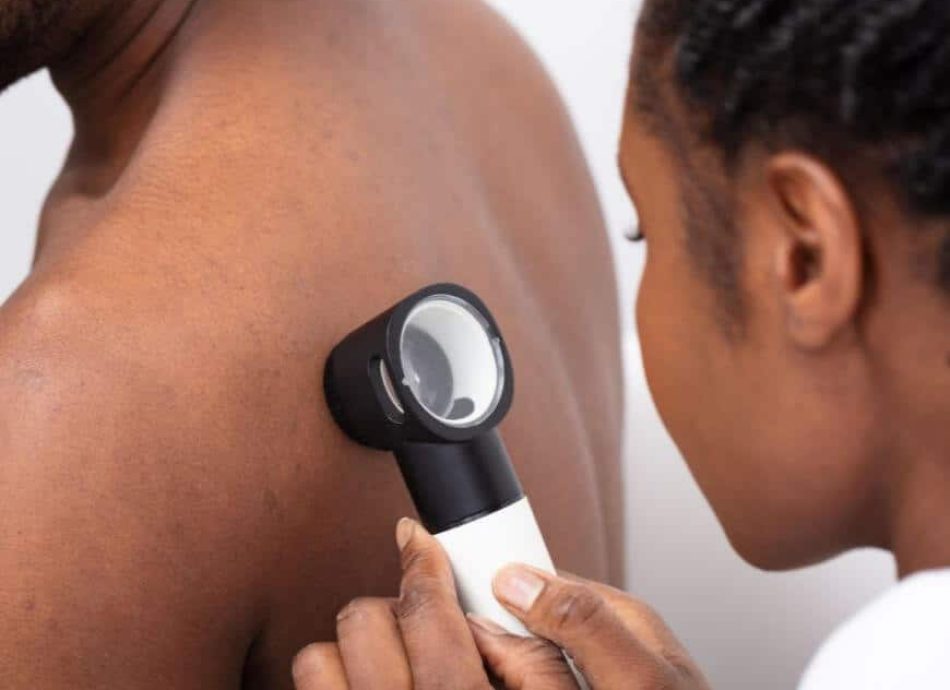
HEAR FROM OUR PATIENTS
WHY HAVE ACNE SCAR TREATMENT IN SHREWSBURY AT ST. MICHAEL'S CLINIC?
Here at St. Michael’s Clinic, Shrewsbury’s leading private skin and laser treatment clinic, our experts are specialists in all aspects of dermatology, skin cancer, anti-ageing and beauty treatments. We are able to offer NHS patients a consultant led dermatology service from our sites in Shrewsbury and Much Wenlock.
St. Michael’s Clinic is regulated by the Care Quality Commission, ensuring the best level of treatment is provided to you in a safe environment. We are part of the Dermatology Partnership, a leading group of dermatology clinics, defined by clinical excellence and focusing on leading dermatological care.
ACNE SCAR TREAT PROCESS
Book Acne Assessment
Contact us to arrange a no-obligation consultation with our experienced acne specialist who will examine and discuss your stage of acne scarring.
Appropriate Scar Removal Treatment Identified
There are a wide range of acne treatment options available depending on the severity and location of your acne scars. Our experienced acne dermatologist will explain all of your treatment options and help you to decide the best programme for you.
Treatment Begins
Once an appropriate treatment has been agreed upon, the treatment programme begins, and you’ll be well on your way to a healthier, happier skin, free from acne scarring. Results will likely appear within the timeframe suggested by your acne specialist.
ACNE TREATMENT INSIGHTS AND ADVICE

The Ultimate Manual to Skin Protection – Deciphering SPF
Using Sunscreen for Optimal Protection Understanding the SPF label on skincare items can feel confusing, especially for those unfamiliar with skincare. Fear not, we’re here to guide you. This comprehensive guide will delve into SPF’s role in skincare, how to select the right SPF and

Exploring Varicose Veins: Recognising, Managing and Preventing
Varicose veins portray themselves as twisted, enlarged veins that can disrupt the allure of your legs and incite discomfort. They are a common concern, specially as we get older. To manage and potentially alleviate the problems they present, understanding varicose veins is essential. In our
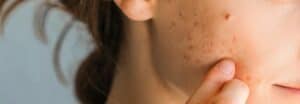
Revealing the Truth About Acne: A Comprehensive Review for Acne Awareness Month
June is globally celebrated as Acne Awareness Month, offering a platform to shed light on one of the world’s most universal skin disorders. The main purpose of this month is to emphasise the importance of knowledge, support and accessible remedies for individuals grappling with acne.
